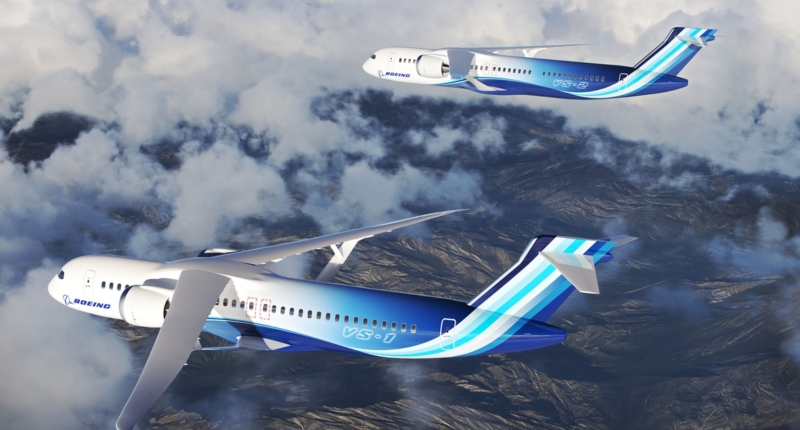NASA is set to receive a boost of nearly $1 billion for aeronautics and sustainable flight research for the fiscal year of 2024, pending approval from Congress. Boeing and NASA’s partnership will continue with the Sustainable Flight Demonstrator project, which aims to develop new sustainable aviation technologies for single-aisle airliners. The Biden administration has proposed $27.2 billion in total funding for NASA’s fiscal year of 2024, an increase of 7.1% compared to 2023. This funding will go towards various programs, including the Artemis lunar exploration program’s Human Landing System, Mars sample return, Earth Science, STEM Engagement, and aeronautics research. NASA’s ultimate goal is to reduce aviation energy use and emissions and achieve net-zero carbon emissions by 2050. The Transonic Truss-Braced Wing concept is expected to increase fuel efficiency by about 30%, and the technologies developed through the Sustainable Flight Demonstrator project will inform the development of the next-generation narrowbody aircraft.
NASA is set to receive a boost of nearly $1 billion for aeronautics and sustainable flight research for the fiscal year of 2024, pending approval from Congress. The increase of 6.5% in the proposed budget is mainly due to the Sustainable Flight National Partnership program, which focuses on developing sustainable aviation technologies. NASA is seeking $995.8 million to fund aeronautics research, while the space exploration sector will see a higher increase.
NASA has awarded $425 million to Boeing to collaborate on the Sustainable Flight Demonstrator (SFD) project, which aims to develop new sustainable aviation technologies for single-aisle airliners. Partners will contribute the remaining funds for the SFD, estimated at about $725 million. The project involves a full-scale Transonic Truss-Braced Wing demonstrator aircraft, featuring extra-long, thin wings stabilized by diagonal struts, which could increase fuel efficiency by about 30% compared to today’s single-aisle jetliners.
NASA’s ultimate goal is to reduce aviation energy use and emissions and achieve net-zero carbon emissions by 2050. The agency hopes that the technologies developed through the SFD project will inform the development of the next-generation narrowbody aircraft. NASA’s efforts in sustainable flight research demonstrate its commitment to solving problems on this side of the atmosphere and its willingness to invest in technologies that could have a positive impact on the aviation industry and the environment.
Boeing’s Chief Technology Officer, Todd Citron, has expressed excitement about continuing the company’s partnership with NASA to demonstrate new technologies that significantly improve fuel efficiency and reduce emissions. The Sustainable Flight Demonstrator project builds on a decade of investment by NASA, Boeing, and industry partners. The project involves developing new sustainable aviation technologies for single-aisle airliners, including a full-scale Transonic Truss-Braced Wing demonstrator aircraft, which could increase fuel efficiency by about 30%.
The Biden administration has proposed $27.2 billion in total funding for NASA’s fiscal year of 2024, an increase of 7.1% compared to 2023. This funding will go towards various programs, including the Artemis lunar exploration program’s Human Landing System, Mars sample return, Earth Science, STEM Engagement, and aeronautics research. NASA Administrator Bill Nelson says that the budget will help the agency to explore new cosmic shores, improve air travel with cutting-edge technologies, and protect the planet. If approved by Congress, NASA’s budget increase would mean nearly $1 billion for aeronautics and sustainable flight research for 2024.
Don’t miss interesting posts on Famousbio
